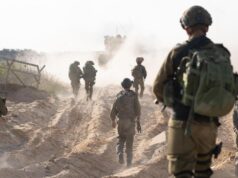United States law enforcement officials have indicted 14 people for allegedly participating in what the government called “a deadly pipeline” that routed money and fighters from the U.S. to the Islamist militant group al-Shabaab in Somalia. Announcing the indictments yesterday, U.S. Attorney General Eric Holder noted that 19 people in Minnesota alone have now been charged in connection with the case. “Nine have been arrested in the U.S. or overseas, five of whom have already pleaded guilty,” Holder said. “Ten of the charged defendants are not in custody and are believed to be overseas.” At least two of those arrested are American citizens.
According to one of the indictments, Amina Farah Ali and Hawo Mohamed Hassan of Rochester, Minnesota, raised funds for the terrorist group by telling potential donors that “the funds were for the poor and needy.” The two women are known to have gone door-to-door in Minnesota’s Somali communities and elsewhere in the United States and Canada to collect money.

Al-Shabaab child soldier |
|
Federal authorities have long worried that al-Shabaab, which has pledged allegiance to Osama bin Laden, could try to launch attacks inside the United States or against Americans abroad. Indeed, officials are concerned with al-Shabaab’s strategy to recruit young Somali-Americans from communities within the U.S. And, to make matters worse, there is reason to believe al-Shabaab is gaining ground. The militants carried out their first attack on foreign soil last month when they exploded twin bombs in the Ugandan capital of Kampala, killing 74 people.
While some analysts frame homegrown terrorism as distinct from the problem of terror networks abroad, as the recent indictments illustrate, this is not the case. Terror groups abroad are known to be connecting with potential followers currently living in the United States, both immigrants and U.S. citizens, and recruiting them to do their dirty work. That networks can, and do, make use of homegrown operatives inside the U.S. is an important factor that should not be ignored in the United States’ long war against terrorism.





